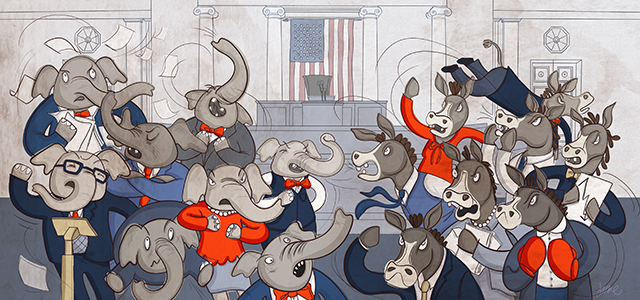Apart from the laws protecting rights that were made for an older time, such as gun laws made for when people had muskets and primitive slow weaponry, there are other laws and conditions protected by the Constitution that prevent progress in modern times.
A big problem, in terms of the structure of our government, is that we have a system that’s built for inaction. There are many veto points with which The House can veto the Senate and vice versa. Members of each of these Congress branches are elected upon different schedules and represent different populations (in the sense that senators represent states of varying sizes, congressmen represent gerrymandered districts of equal size). When the chambers are controlled by different parties, which has become almost the new normal, they don’t agree on much. And their willingness to compromise seems to have shrunk.
That’s not the Constitution’s fault; rather, it is a change in the norms of U.S. politics. However, the Constitution currently provides and previously provided no method of breaking the impasse (as other systems of government generally do). You can just as easily note that it’s not the fault of a highly ideological member of Congress who prefers inaction to compromise. It’s just that when both situations obtain, you get gridlock. If we did have a chance to consider structural changes in our system of government, I suspect we would try to build in some new ways to overcome such standoffs. Hopefully, in a future similar to current, where conflicting ideologies present a favorable option and an unfavorable option, there is something in writing to ensure that desires for change can circumnavigate gridlock via party ideologies and allow action, despite a stalemate.

